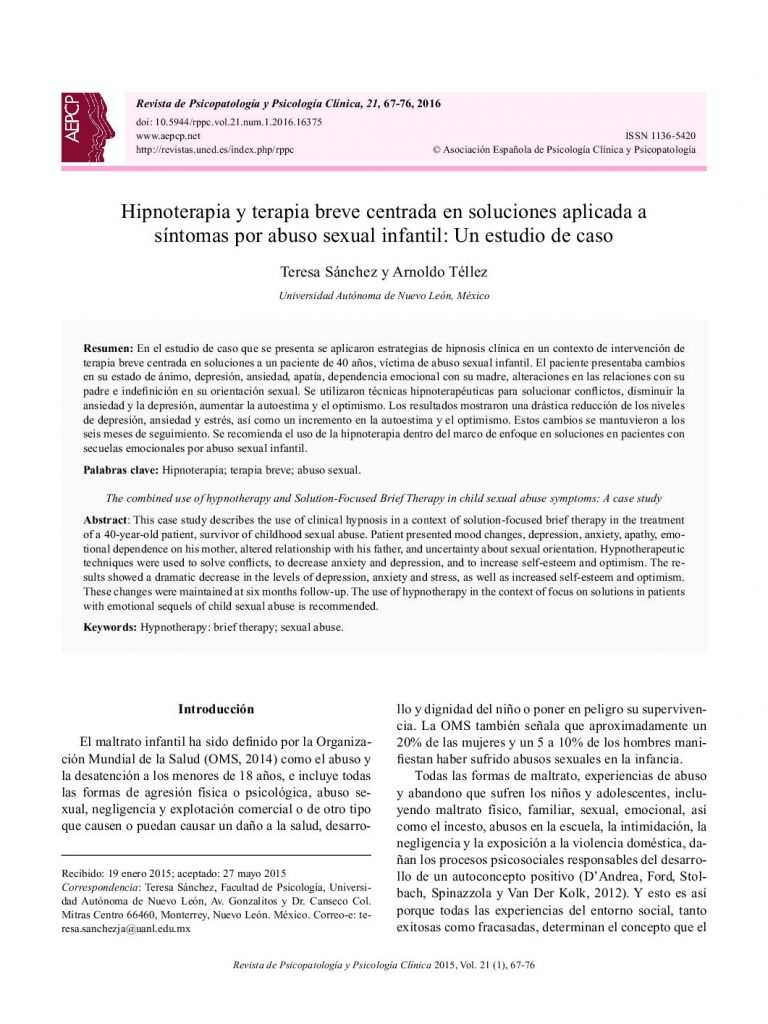Hipnoterapia y terapia breve centrada en soluciones aplicadas a síntomas por abuso sexual infantil: Un estudio de caso.

- Afrontamiento y motivación como predictores del bienestar subjetivo y psicológico.
- Influencia de la sensibilidad a la ansiedad en una intervención psicológica para dejar de fumar.
- Características individuales y familiares de los adolescentes inmersos en violencia filio-parental: la agresividad física, la cohesión familiar y el conflicto interparental como variables explicativas.
- Kretschmer revisited: Mental fatigue and ideas of reference: Contributions from Reinforcement Sensitivity Theory.
- ¿Que pueden aportar actualmente las nuevas tecnologías al trastorno bipolar?.
- El tratamiento psicológico de la tricotilomanía: Un estudio de caso.
- Hipnoterapia y terapia breve centrada en soluciones aplicadas a síntomas por abuso sexual infantil: Un estudio de caso.
This case study describes the use of clinical hypnosis in a context of solution-focused brief therapy in the treatment of a 40-year-old patient, survivor of childhood sexual abuse. Patient presented mood changes, depression, anxiety, apathy, emo- tional dependence on his mother, altered relationship with his father, and uncertainty about sexual orientation. Hypnotherapeutic techniques were used to solve conflicts, to decrease anxiety and depression, and to increase self-esteem and optimism. The re- sults showed a dramatic decrease in the levels of depression, anxiety and stress, as well as increased self-esteem and optimism. These changes were maintained at six months follow-up. The use of hypnotherapy in the context of focus on solutions in patients with emotional sequels of child sexual abuse is recommended.
This case study describes the use of clinical hypnosis in a context of solution-focused brief therapy in the treatment of a 40-year-old patient, survivor of childhood sexual abuse. Patient presented mood changes, depression, anxiety, apathy, emo- tional dependence on his mother, altered relationship with his father, and uncertainty about sexual orientation. Hypnotherapeutic techniques were used to solve conflicts, to decrease anxiety and depression, and to increase self-esteem and optimism. The re- sults showed a dramatic decrease in the levels of depression, anxiety and stress, as well as increased self-esteem and optimism. These changes were maintained at six months follow-up. The use of hypnotherapy in the context of focus on solutions in patients with emotional sequels of child sexual abuse is recommended.



